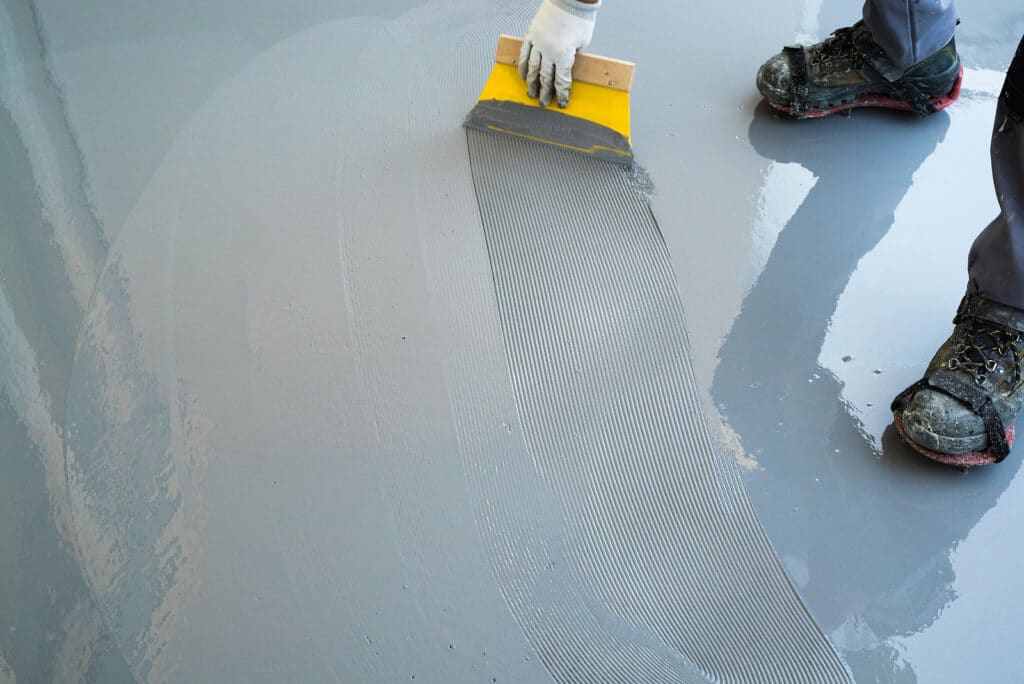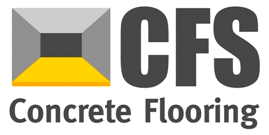The Main Resin Floor Types Explained

Resin flooring is a popular solution for a low-cost and highly durable surface that is suitable for commercial and industrial use. No matter which type is used, a resin flooring installation works by pouring resin onto a concrete substrate and then sealing it with protective layers.
When you want a floor that has a combination of performance and durability, resin is a good choice, but there are several variations and options to choose from.
It can be confusing to understand the differences between resin floor types. However, as experts in delivering resin floor projects with a variety of floor coating options, we can help you understand. Contact us for a quality resin floor installation.
What Are The Different Resin Floor Types?
While a resin floor functions in much the same way no matter the type, there are some subtleties in their variations. The following are the most common resin floor types:
Epoxy resin floors
Epoxy is a type of resin that is most common in flooring for commercial spaces, hardening to form one of the strongest surfaces possible. During pouring, it will bond to the surface of the concrete and provide an extremely durable floor.
Epoxy resin will resist wear and tear as well as avoiding issues with moisture, as it is such an effective seal. It takes a very long time to harden in comparison to other resins, up to 10 days.
Polyurethane resin floors
Polyurethane is another type of resin, which people sometimes refer to as ‘PU’ resin. It is very strong, which makes it beneficial for areas where there is a high chance of impacts occurring – such as in warehouses and distribution centres.
A PU floor is particularly resistant to temperature fluctuations, meaning it can be useful in commercial kitchens, breweries or other settings where there may be high levels of heat. It has a cure time of approximately 5 days.
Polymethyl methacrylate
A polymethyl methacrylate (PMMA) resin is what you may call synthetic resin because it is a chemically synthesised version of methyl methacrylate – which is in itself an organic compound.
While it functions the same way as other resin types, the main difference is that it can cure in as little as 1 hour, which makes it a good choice for busy areas. The fast cure time also makes repairs a lot simpler and less disruptive.
How Do I Choose The Right Type Of Resin Floor?
It can be difficult to select the most appropriate type of resin for your installation, but the trick is to remember the use of the floor and the needs that you have. For example, if you have a project that requires fast completion, then a PMMA resin is the best choice. However, this can be expensive so if you have a slower cure time you can save on costs.
It is a difficult debate, but the suitable option will be a balance of costs and the functionality you require. If you have to wait a little more time for a cure to finish it may be worth it in the longer term. The best way to choose is to consult with a concrete flooring installation expert.
If you have a resin floor installation project to complete then you can utilise our services for a guaranteed high-quality finish and long-lasting result. Please feel free to contact us today to discuss installing your new resin floor.
FAQs and Useful Information
The following are some frequently asked questions and further details on resin floors and the services we provide:
A resin floor is simply a poured floor surface that overlays the concrete surface. Resin is available in different varieties, including epoxy, polyurethane and synthetic resin. The resin then hardens and bonds to the concrete surface. It is possible to apply additional protective layers and sealants if necessary, which can add functions like chemical-resistance. The final look of a poured resin floor is even and seamless, similar to still water, and reflects light. Different colours are available depending on the type of resin you choose.
Resin flooring differs in price depending on the size of the surface area you are hoping to cover. Larger spaces will have a higher cost. Different resin floor types vary in price and synthetic resin is usually the most expensive. Epoxy resin is usually the cheapest, so is most suitable for larger spaces where budget may be a concern.
Yes. After curing, resin flooring is extremely durable. Resin is a derivative of plastic and is chemically very tough. Synthetic resin is capable of withstanding extremely high temperatures, so it is suitable for industrial settings where there is a risk of exposure to heat.
Resin floors can become slippery when wet. To avoid this, a range of sealants and anti-slip layers can be added to the floor. This helps to avoid accidents and can contribute to a safer workplace, which can be very important in commercial and industrial settings that have heavy machinery or bulky stock.
Contact us today to get your installation underway.
